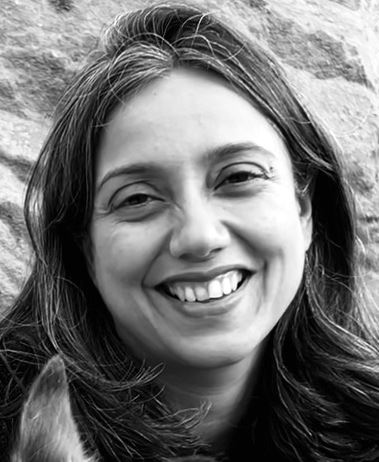 back to summer 2025 newsletter
back to summer 2025 newsletter
by Kusum Punjabi, AMFT, Director of DEI and Claude AI
This August, as communities worldwide celebrate Raksha Bandhan - the Hindu festival where sisters tie protective threads called "rakhi” around their brothers' wrists - I find myself reflecting on the profound wisdom embedded in this ancient ritual. The festival, meaning "protection bond" in Sanskrit, speaks to something I believe many of us recognize: our deep human need for intentional, protective love.
Over centuries, Raksha Bandhan has evolved beyond honoring biological siblings. In medieval India, Rajput queens sent rakhis to neighboring rulers, forging protective alliances beyond blood ties. During India's Independence Movement, the festival became a symbol for unity across religious and regional divisions. Perhaps there's something here that resonates with what we witness in our clinical work - the ways people create meaningful bonds that transcend traditional family structures.
What strikes me is how this ancient tradition mirrors what we now call "found family"—those chosen relationships that provide emotional support, belonging, and care. Like the deliberate act of tying a rakhi, “found family” seems to require conscious choice and ongoing commitment. I wonder if this intentionality is part of what makes these bonds so resilient, built as they are on mutual selection rather than obligation.
In my practice, I’ve noticed that this concept becomes especially significant in certain communities, such as those adopting identities that challenge family expectations - LGBTQ+ individuals who've faced rejection, neurodivergent people whose families struggle to understand their needs, individuals with disabilities experiencing social isolation. Many members of these communities seem to find profound healing through chosen relationships. I've also seen survivors of family abuse and individuals in recovery find acceptance in “found family” that their biological families couldn't fully provide.
The therapeutic implications of “found family” feels substantial to me especially when you consider how attachment research suggests that while early relationships shape our relational templates, people can develop more secure ways of connecting later in life through healing relational experiences. This concept of "earned security" reveals that adults who experienced early adversity can still develop coherent, reflective understanding of their childhood experiences, essentially growing into security through therapeutic relationships, self-reflection, and healthy adult connections. The brain's remarkable capacity for reorganization throughout life means that new neural pathways associated with trust and emotional regulation can develop even in adulthood. “Found family” relationships might offer precisely these kinds of healing experiences, providing the safety and consistency needed to gradually reshape how we connect with others.
The impact of “found family” on identity formation seems particularly profound. Author and dreamworker Toko-pa Turner's words in "Belonging: Remembering Ourselves Home" resonate deeply, "Our longing for community and purpose is so powerful that it can drive us into joining established groups, systems of belief or even employments and relationships that, to our diminished or divided self, give the false impression of belonging to something greater. But these places often have their own motives and hidden contracts. They grant us conditional membership, requiring us to cut parts of ourselves off in order to fit in.”
I've witnessed how “found family” can provide the opposite – unconditional acceptance that allows individuals to remain whole. For those whose authentic selves weren't welcomed within biological families, these bonds seem to create what we might call "identity safety" – the ability to be authentic without fear of judgment.
This perspective invites us as practitioners to expand our traditional approaches. What if we included chosen family members in genograms and family therapy interventions? When assessing support systems, might we explore not just biological connections but the quality of relationships providing familial functions? I'm learning that cultural humility demands particular attention to “found family” dynamics within marginalized communities – for many, these relationships aren't luxury but necessity for psychological survival.
Perhaps our therapeutic interventions could more actively support “found family” development – helping clients identify relational needs, develop healthy relationship skills, and navigate the unique challenges of chosen family dynamics. Like Raksha Bandhan's emphasis on protective love, “found families” often create rituals and traditions to strengthen bonds, providing unconditional support and emotional security some may not have found in biological families, due to distance, dysfunction, or loss.
What moves me most is how this therapeutic power extends beyond individual healing to community resilience, creating networks of care that model healthy relationship dynamics. As mental health professionals, recognizing “found family” as legitimate and therapeutically significant feels like both good clinical practice and a profound honoring of the human capacity to create healing relationships beyond the circumstances of birth.
This Raksha Bandhan, I'm reminded that protective bonds – whether tied with thread or built through choice – hold transformative power. Perhaps, there's wisdom in both ancient traditions and modern understanding about what it means to truly belong.
This article was co-authored by Kusum Punjabi and Claude (Claude Sonnet 4), an AI assistant from Anthropic. Claude assisted with brainstorming, research, and drafting, while conceptualization and all final editorial decisions were made by the human author.
